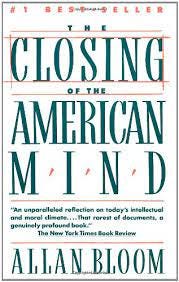In my last commentary, I maintained that public intellectuals of the Left and the Right have failed to adequately address the critique of American higher education contained in Alan Bloom’s best-selling 1987 book, The Closing of the American Mind. I suggested that Bloom was essentially correct in grasping the importance of liberal higher education in a democracy, but that he makes a not very useful distinction between the function of the great or elite university and that of the state university. And I further suggested that Bloom was on target in seeing liberal education as providing an opportunity for students to know alternative answers to important questions, but (1) questions concerning the historical and structural sources of world poverty and war are among the important questions; and (2) the speeches and writings of the exceptional leaders of the people’s revolutions of the world, and the intellectuals organically tied to them, are among the sources of the alternative …
© 2025 Charles McKelvey
Substack is the home for great culture



